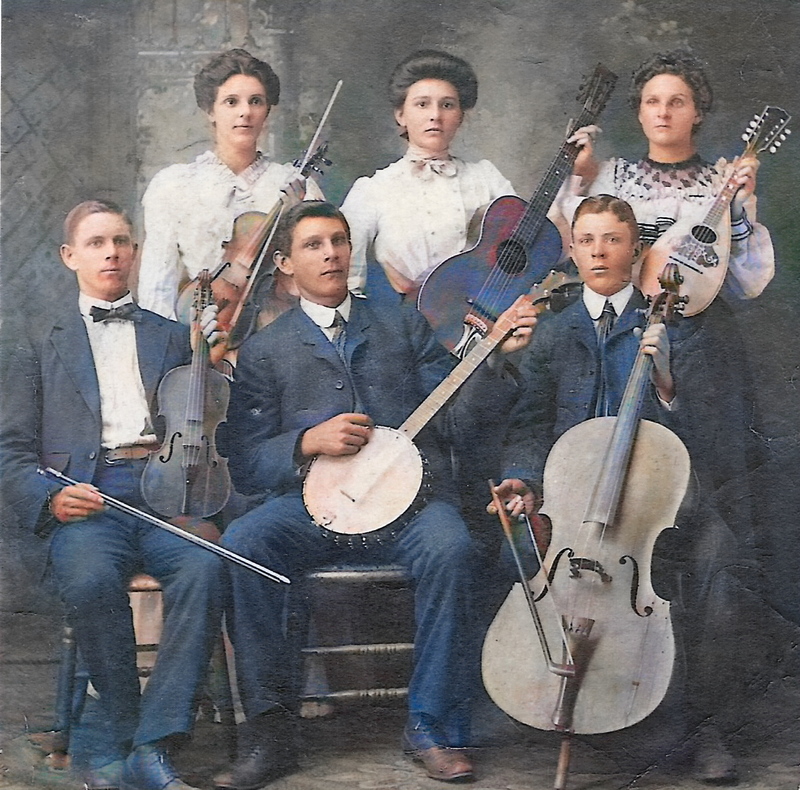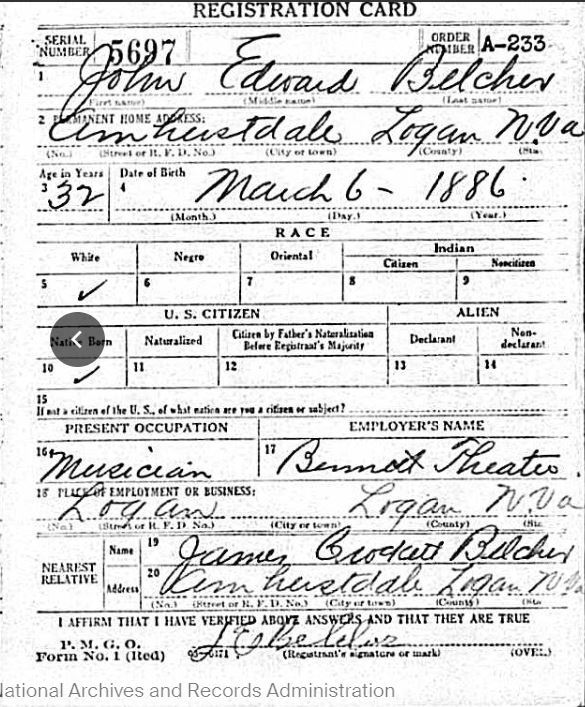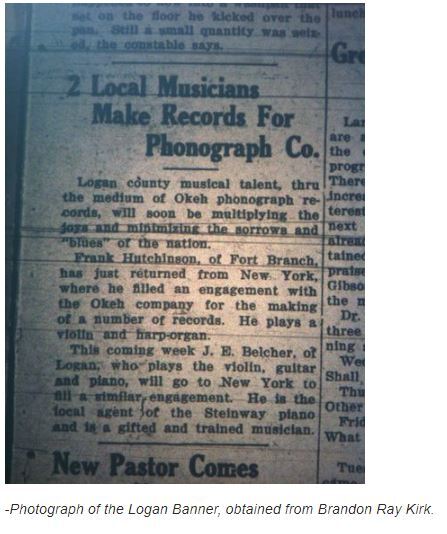John Edward 'Ed' Belcher
John Edward "Ed" Belcher was a Logan County musician and music store owner. He was born March 6, 1889, and died on July 27, 1970. Little is known at this point about his musical endeavors save for his mention in Ivan Tribe's well-known book, "Mountaineer Jamboree: County Music in West Virginia," in which Tribe indicates that Ed Belcher recorded on Brunswick Records with H.M. Barnes's Blue Ridge Ramblers.
Logan-area historian, Brandon Ray Kirk, found some family of Ed's and learned a bit about his music. Ed's daughter, Donna Samson, had this to say about Ed Belcher:
John Edward Belcher was born in 1886 or 1889, the son of James and Mary (Thomas) Belcher. The Belchers lived in Scott District, Putnam County, in 1900. Donna thought her father was from Buffalo Creek in Logan County. She said her family was once heavily involved in the sawmill business. As a young man, Ed played music with his brother Henry. At some point, he took music lessons and learned to read and write music. He could play the piano, banjo, guitar, and “could make a violin cry.” In the 1910s and 1920s, he played the violin in an orchestra during silent movies at the Logan Theatre. About that same time, he also operated a boarding house near the train station (likely a convenient “stopping off place” for Ed Haley when he came into Logan).
“He always kept music around his home,” Donna said. Belcher played ragtime and loved to play “Falling Water” on the piano in his later years.
Donna said her father met her mother Rhoda Mullins (1919-1990) while at a dance in Logan. Rhoda was staying in town with her sister Dixie, who was a local schoolteacher. They were the daughters of George Mullins of Harts Creek. Her father, she added, was some thirty years older than her mother, who was his second wife.
According to Brandon Ray Kirk's interview with Wirt Adams, Wirt had this to say about Ed Belcher's musicianship:
"Now Ed Belcher was a different thing altogether. He played all kinds of stuff. He played classical, he could play hillbilly. He played a piano, he played accordion, he played a banjo, he played a guitar. He was a good violin player. He tuned pianos for a living. Well, I’d call him a professional musician. They had talent shows in Logan. He’d sponsor that. He’d be like the MC and these kids would go in and play. He was a head musician. He was good. He could do ‘Spanish Fandango’ on the guitar and make it sound good. He could play all kinds of tunes. I never could play with him but then he could take the piano and make it talk, too. He was just an all-around musician.”
Logan-area historians, Brandon Ray Kirk, and Kenneth King, both turned up pictures used in this post.




